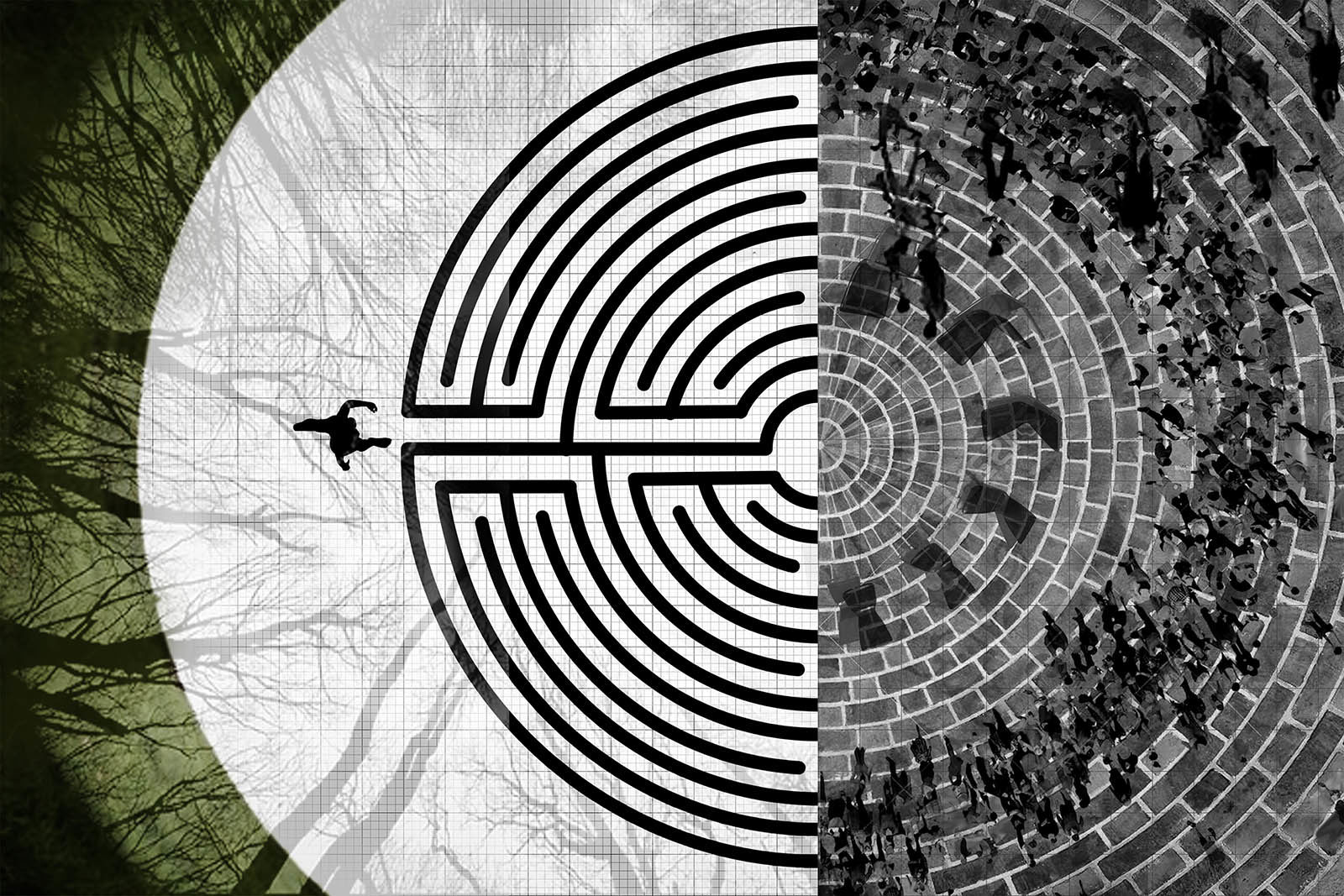Societal Simulations: A Carceral Geography of Restoration

by Dana McKinney (MArch/MUP ’17) — Recipient of Alpha Rho Chi Award
Upon re-entry, approximately three out of every four individuals reoffend, resulting in a relentless cycle of recidivism. This thesis advocates for community supervision by inventing spaces of reconciliation and rehabilitation, exploring alternatives to lessen recidivism while reviving the broader community. Justice, equity, security, and imagination are deployed across an urban landscape to create a fully immersive environment for restorative programs. The village inoculates recidivism.
Situated in Newark, New Jersey, a city plagued by crime and incarceration, the village provides housing, retail, and maker spaces for employment and job training, restorative justice spaces, and public amenities. The housing supports a variety of household structures: co-living, single-family, and multi-generational. Every housing unit incorporates private exterior space, allows for ample natural light, and rejects corridors typical to prisons and public housing. Positioned throughout the site’s courtyards, restorative justice spaces provide calming environments for meetings between victims, offenders, and community members. Each space frames its own surreal landscape—a radical departure from the depressed surrounding environment. Public programs, including an amphitheater, community room, and playscape, stand along a public path engaging adjacent neighborhoods. As a heightened simulation of society, the village provides housing and financial stability, improves interpersonal relationships, and enhances residents’ self-worth, encouraging successful reentry into society.
This thesis critiques incarceration as a socio-spatial condition and institution that I fundamentally seek to dissolve. It is not a prison. Rather, it is an urban intervention of restoration and hope.